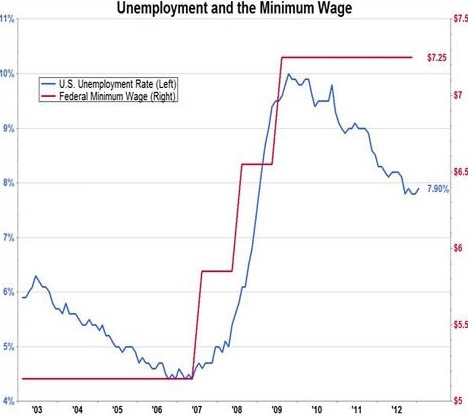By Pat Hughes
This week, the Sun-Times published an editorial encouraging legislators to raise the minimum wage in Illinois. In making their case, the editorial board cited the Illinois Restaurant Association’s support for an increase in the minimum wage to $11 per hour.
Predictably, the Sun-Times failed to capture the lamentable truth that fueled the Restaurant Association’s decision to take a position that directly contradicts the interests of their industry. Years of uncertainty borne of political games, corruption and misguided policy choices – including high taxes and heavy regulation – have taken their toll and forced the Restaurant Association’s hand.
Faced with multiple and inconsistent proposals to raise the minimum wage at both the state and local level – including a measure passed today by the Chicago City Council increasing the minimum wage to $13 per hour – the Restaurant Association’s endorsement of an $11 minimum wage statewide is an attempt to minimize the damage to their industry and to create some measure of predictability in a state that views them as an ATM machine, as opposed to a critical stakeholder.
The truth, however, is that a minimum wage increase does not benefit the restaurant industry or their employees. In fact, 79% of all economists agree that the minimum wage increases unemployment because it increases the price of labor. To meet this added expense, employers are often forced to cut back on hours, hire fewer new workers, or replace labor-intensive work with technology. In some cases, a mandated wage increase will drive employers out of business.

Moreover, the Congressional Budget Office reports, “The increased earnings for some workers would be accompanied by reductions in real income for the people who became jobless because of the minimum-wage increase, for business owners, and for consumers facing higher prices…”
While the Illinois Restaurant Association’s position – given the state’s inhospitable political climate – is understandable, Illinois’ business community and free market advocates must revive their opposition to anti-business legislation and strengthen their advocacy for a reform-focused policy agenda that will invigorate economic growth.
At the outset, demand that legislators make every effort to ensure that government resources are spent wisely. This means rooting out waste, fraud and abuse at all levels.
Next, insist that legislators pay more than mere lip-service to the critical role the state’s education system plays in a knowledge-based economy. School reform is a key component in creating a more equitable society.
Finally, Illinois’ debt and pension liabilities, in combination with its tax, budget, labor and spending policies have chased away taxpayers, businesses and capital. The state requires policy reforms that reflect the state’s fiscal realities. The business community must advocate for these reforms with the passion of the innovators, organization builders and job creators that they are. As a community, they must engage in politics to change the policies that have led Illinois to insolvency.
Together, we must do more than just control the damage. We must lead the restoration. Start by joining Illinois Opportunity Project’s Policy Revolution.





